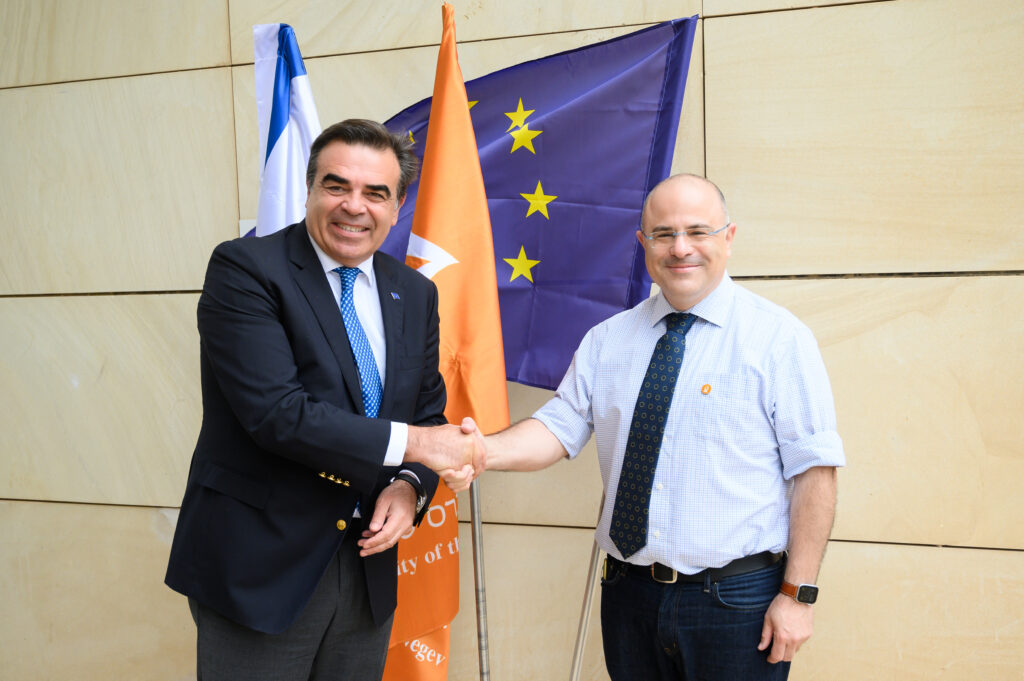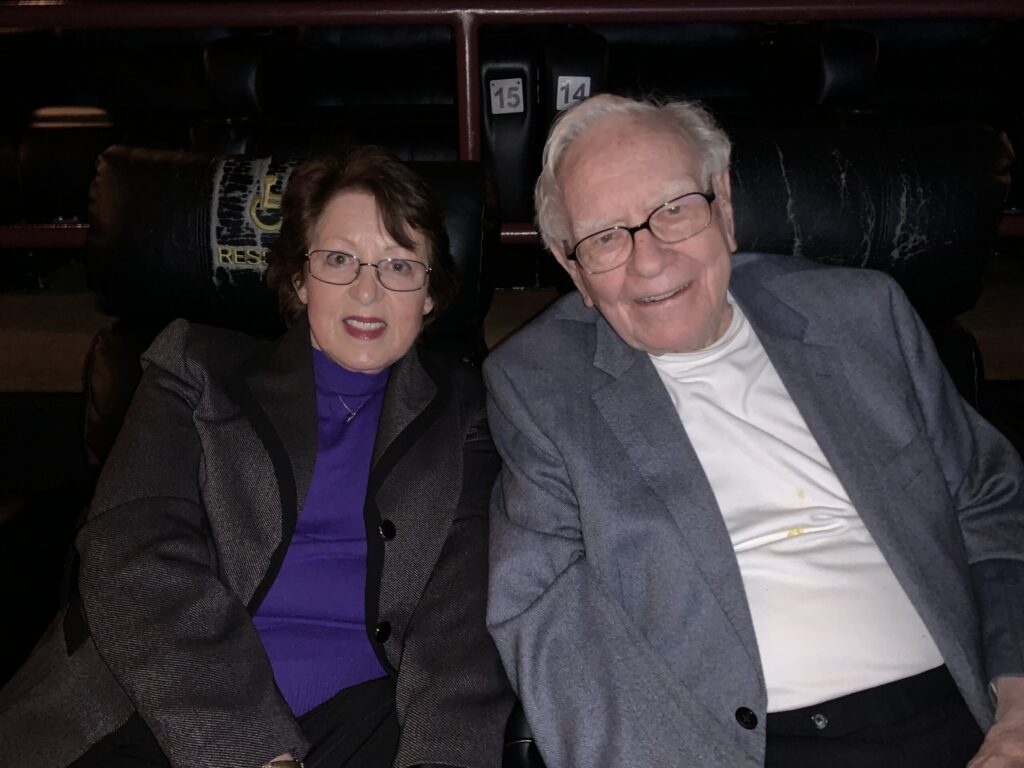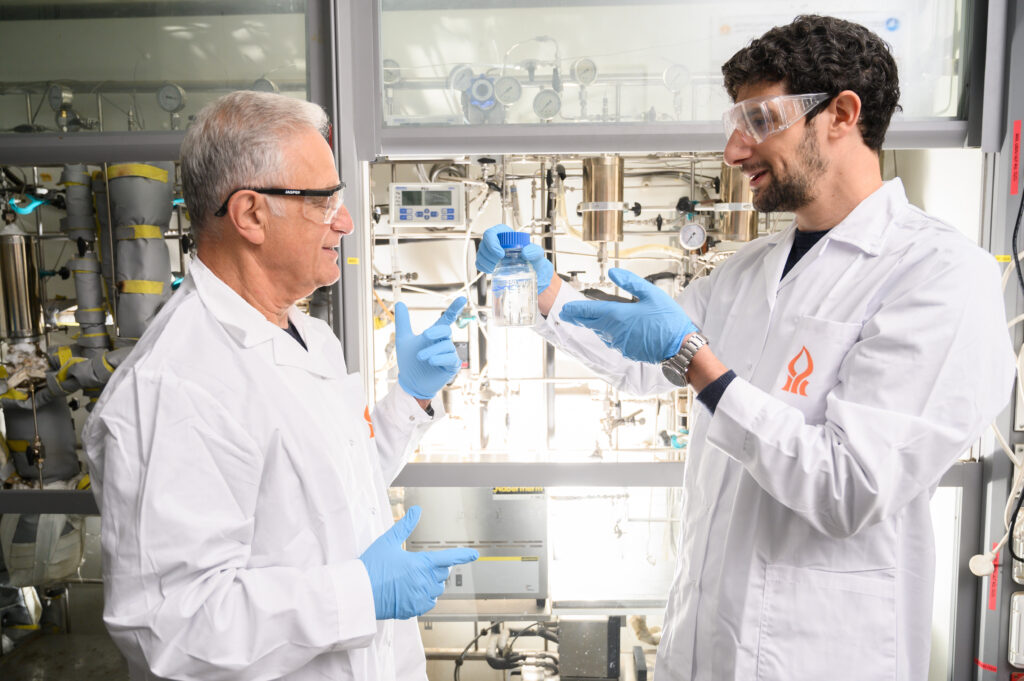
Ben-Gurion University and Rutgers University Weigh Solar Partnership
Ben-Gurion University and Rutgers University Weigh Solar Partnership
November 24, 2008
Alternative Energy, Business & Management, Desert & Water Research
View infolive.tv video of Prof. David Faiman demonstrating and describing his solar research.
Rutgers University and a leading Israeli researcher may collaborate on developing cost-efficient solar energy.  David Faiman, chair of the Department of Solar Energy and Environmental Physics at Ben-Gurion University and director of the National Solar Energy Center, has been researching the gathering of concentrated sunlight through the use of mirrors, rather than through much larger, and costlier, solar panels.
David Faiman, chair of the Department of Solar Energy and Environmental Physics at Ben-Gurion University and director of the National Solar Energy Center, has been researching the gathering of concentrated sunlight through the use of mirrors, rather than through much larger, and costlier, solar panels.
On Nov. 10 he described his methods at Rutgers, in conjunction with its Department of Materials Science and Engineering. The program was facilitated by the Israeli consulate in New York.
“We’re looking for any kind of collaboration,” said Dr. Dunbar Birnie III, chair of Rutgers’ engineering department and the Corning/Saint-Gobain/Malcolm G. McLaren Professor of Ceramic Engineering.
Birnie specializes in dye-sensitized solar cell research and said the department has focused on various aspects of solar power, including solar-charged hybrid cars.
“There are lots of places on the globe that have lots of sunlight, including Israel and Arizona, although New Jersey is probably not high on the list,” he acknowledged. “But New Jersey is a place with a lot of eco-friendly sentiment.”
The state’s energy master plan, released last month, requires a 20 percent reduction in energy consumption by the year 2020, necessitating “a strategic” approach to future energy needs, said Birnie.
And despite its lack of abundant sunshine, Faiman said, such solar disks could bring energy savings even in New Jersey.
“New Jersey has huge space; just don’t put them on roofs,” said Faiman. “Go out on the open plains of New Jersey. Then you will start generating serious amounts of power.”
Most serious work
Faiman’s two-hour lecture included a lively question-and-answer period with students and professors gathered in the Fiber Optics Building on the Busch Campus in Piscataway. The Israeli expert and many of those professors met afterward in a luncheon to discuss potential partnerships.
Faiman said he hoped a cooperative effort could be established. It would be the first such collaboration with an American university for his research team.
“Dunbar Birnie is doing some of the most serious work in the United States in this area,” he said.
Sharon Regev, the Israeli consul for public affairs, said she would work with the New Jersey-Israel Commission to explore whether there is grant money available for such initiatives. Several months ago, she said, Congress passed legislation providing money for such joint American-Israeli research, possibly making federal funding available.
Faiman’s start-up company, Zenith Solar, located outside Tel Aviv, hopes to generate interest in its cost-efficient panels in Europe, India, China, and in California, where the technology was pioneered. Solar collectors developed by another Israeli company already are in place in California’s Mojave Desert.
Zenith erected its first dishes in Israel on Nov. 4 at Kibbutz Yavne outside Tel Aviv to provide the 250-family community with more than a quarter of its energy needs.



